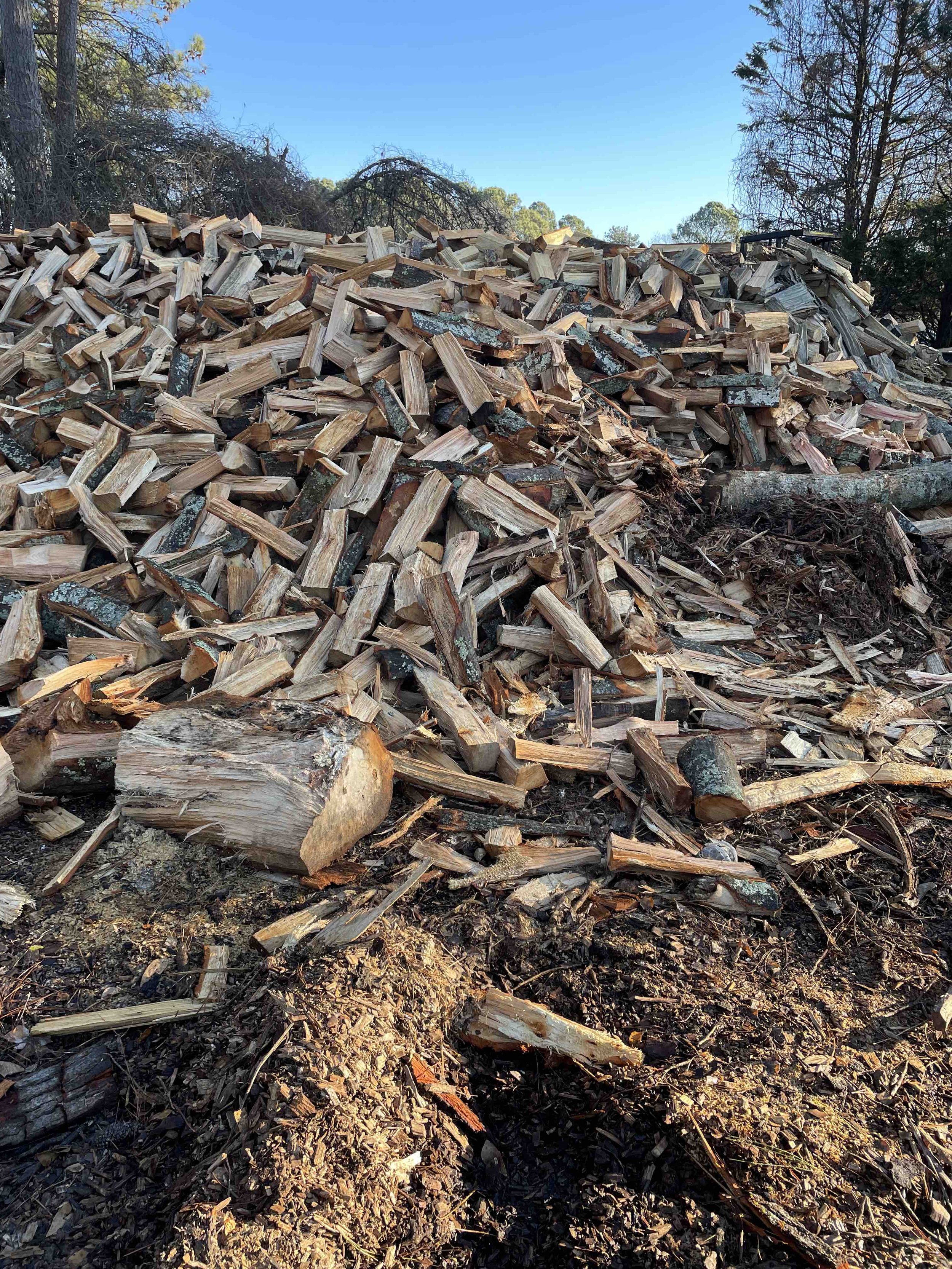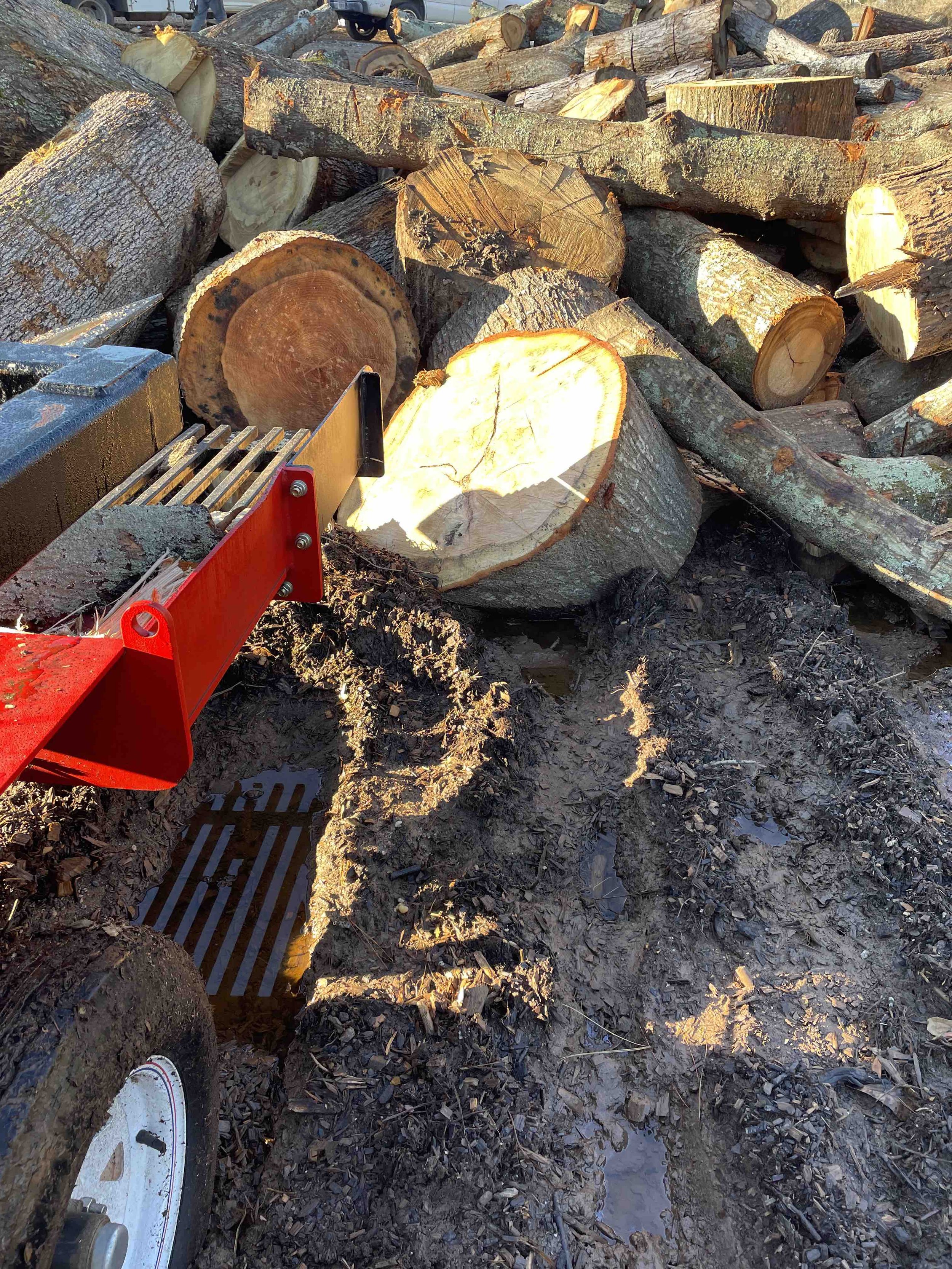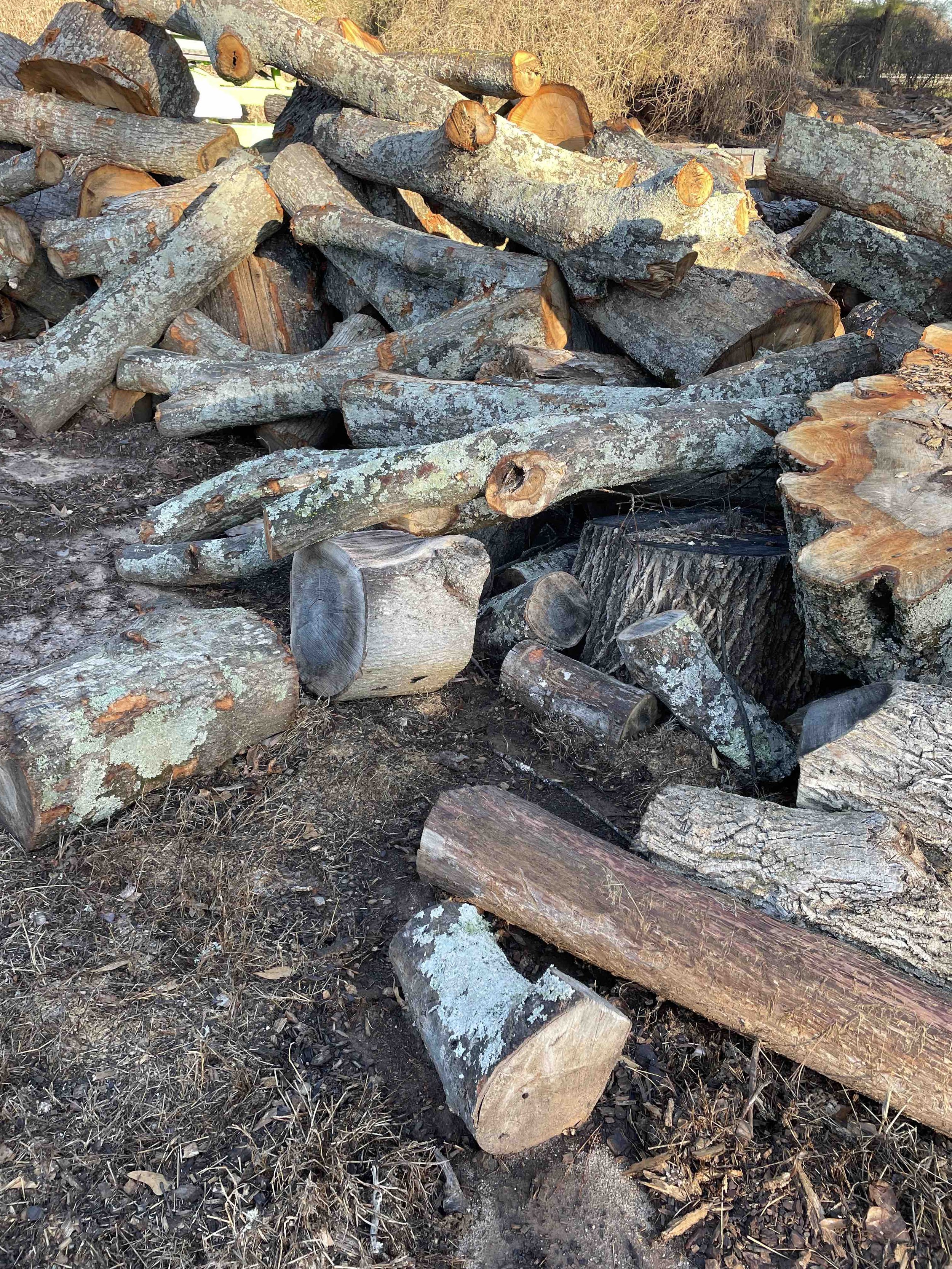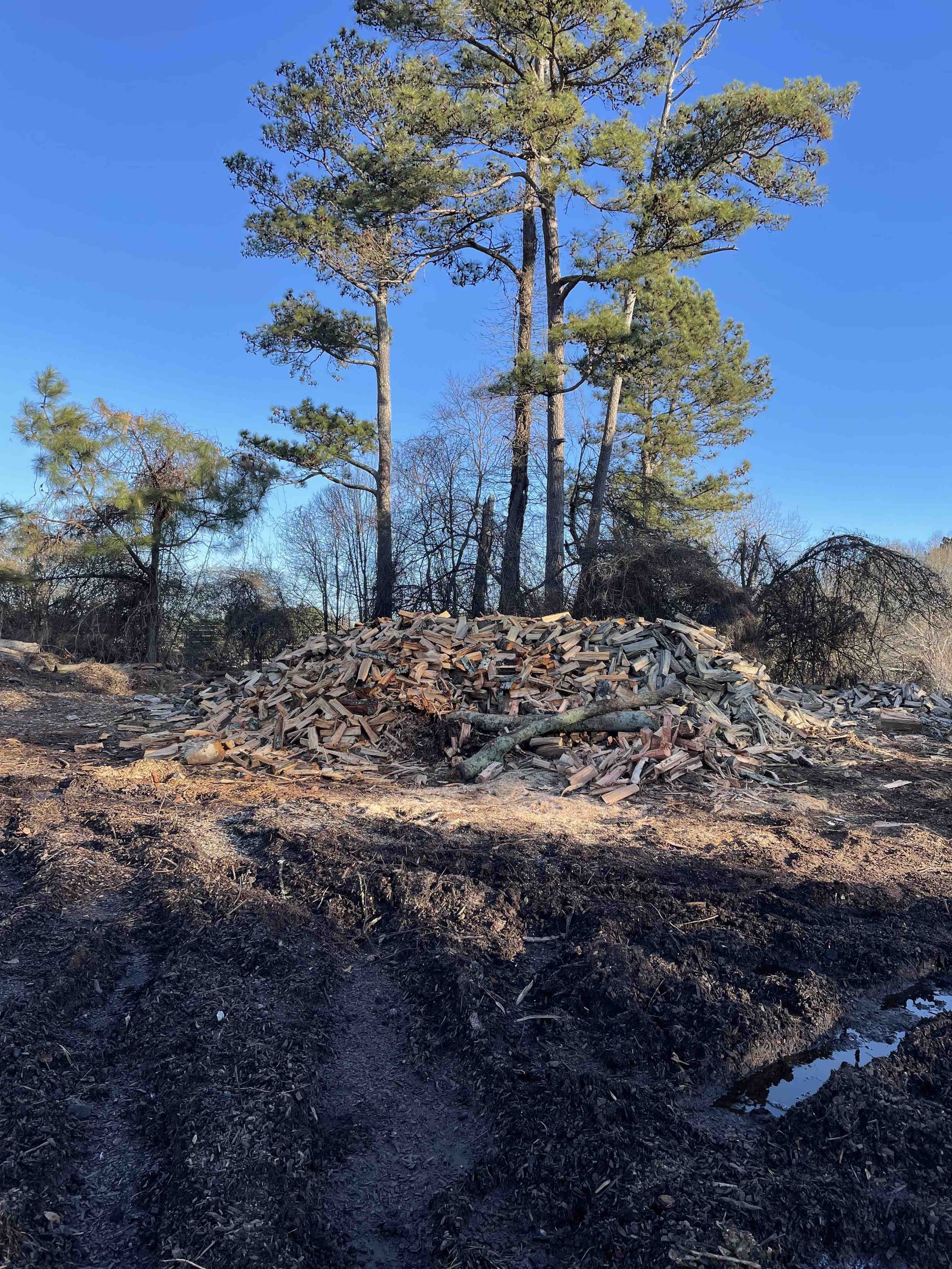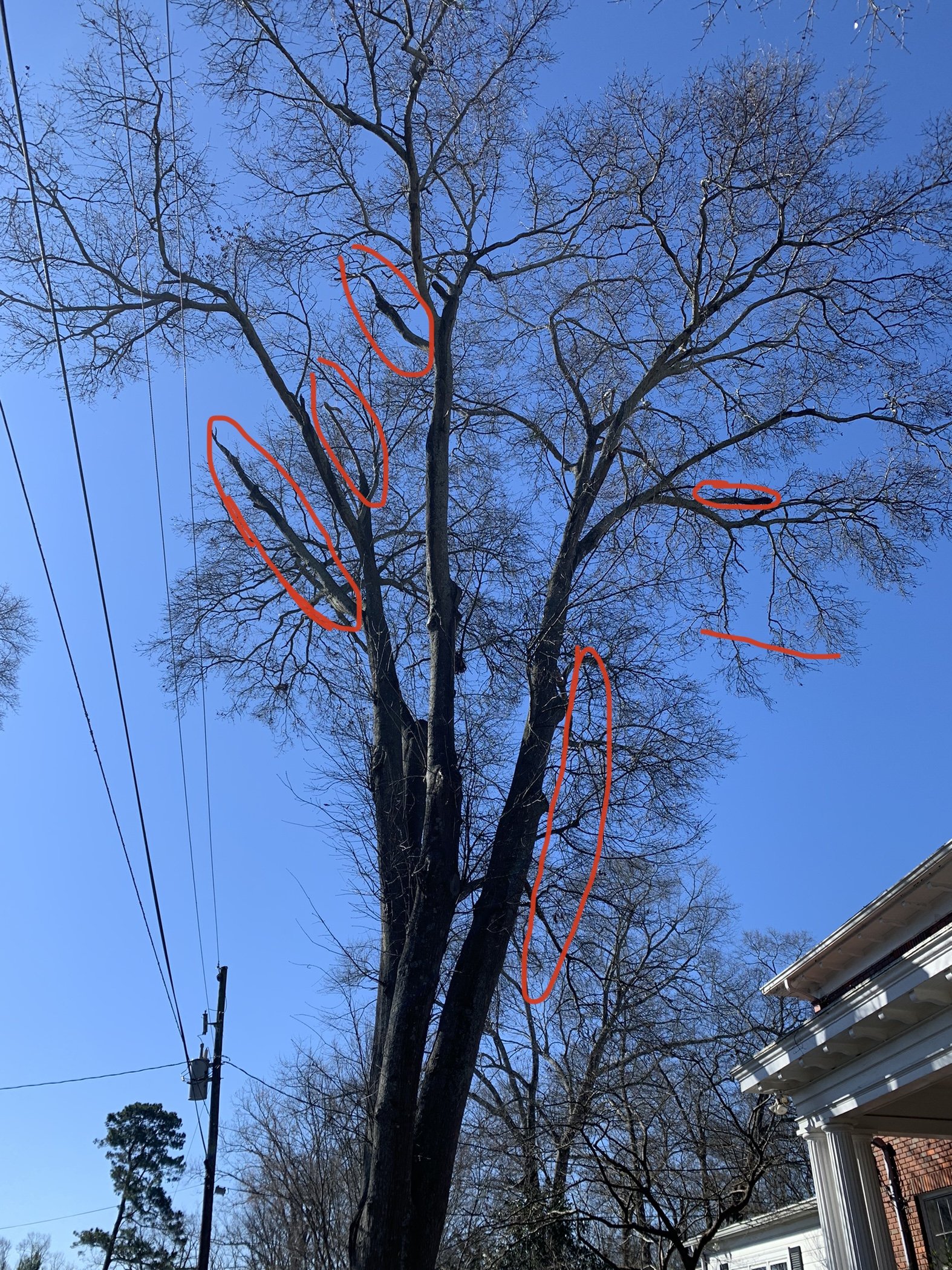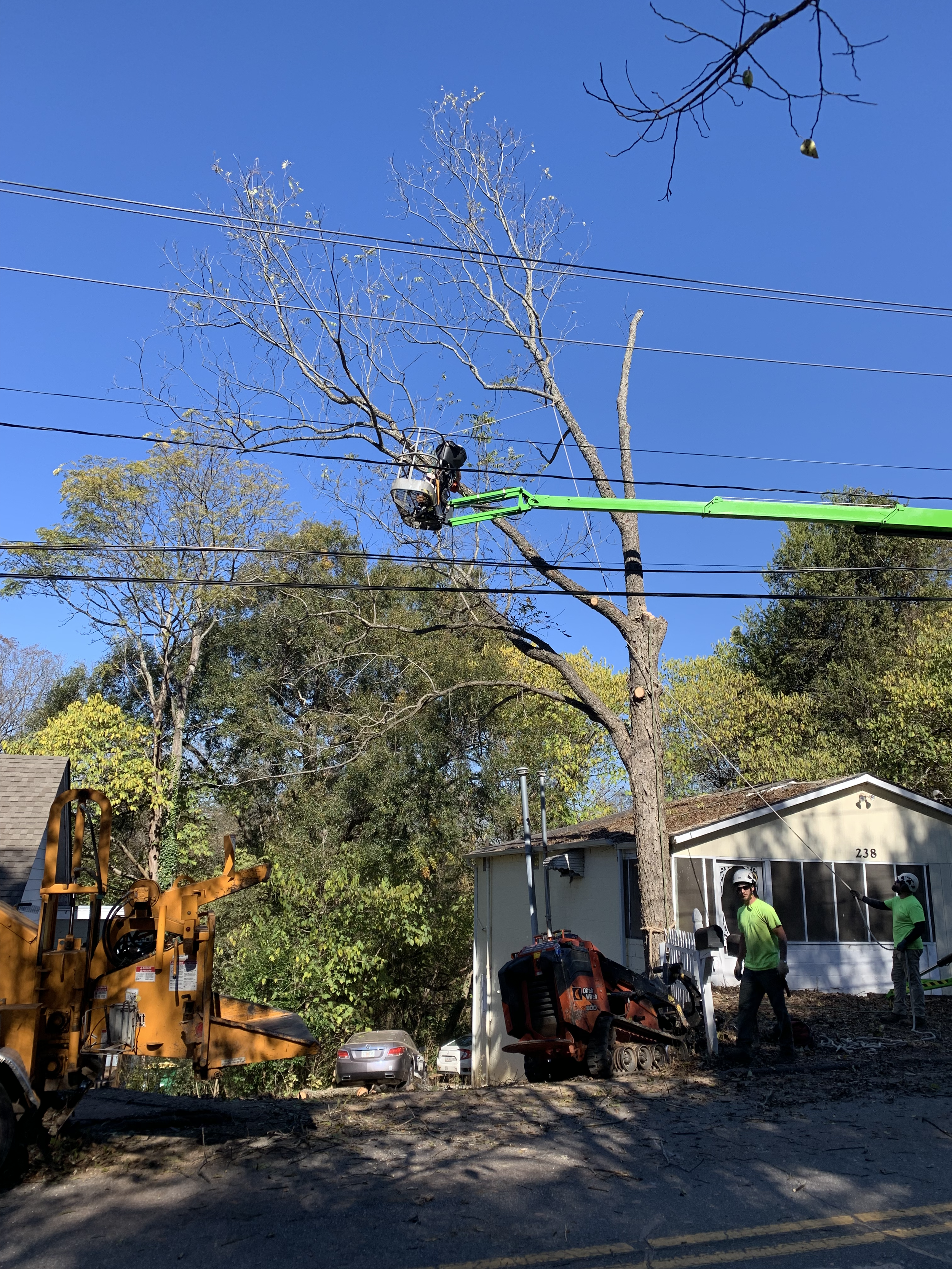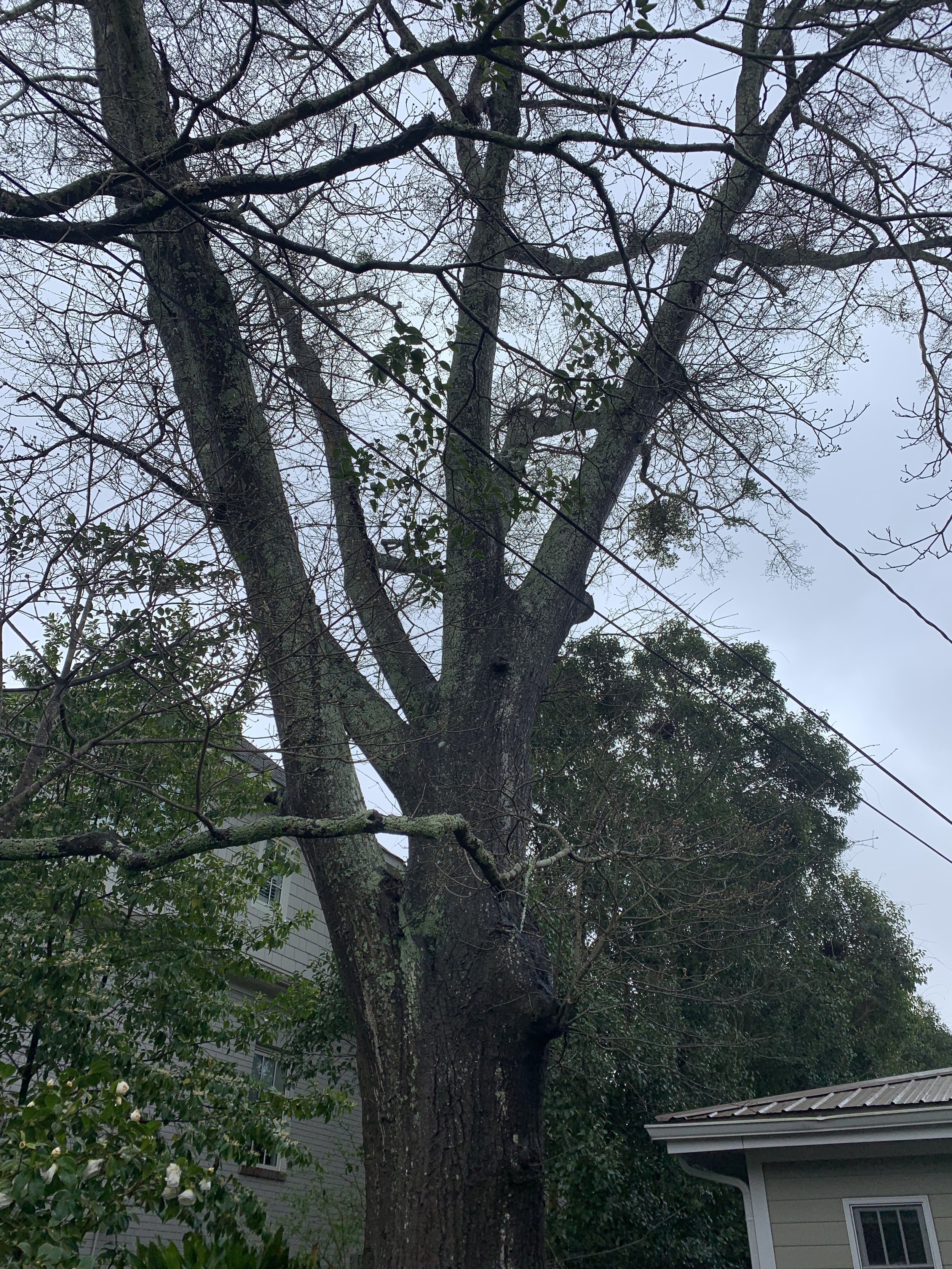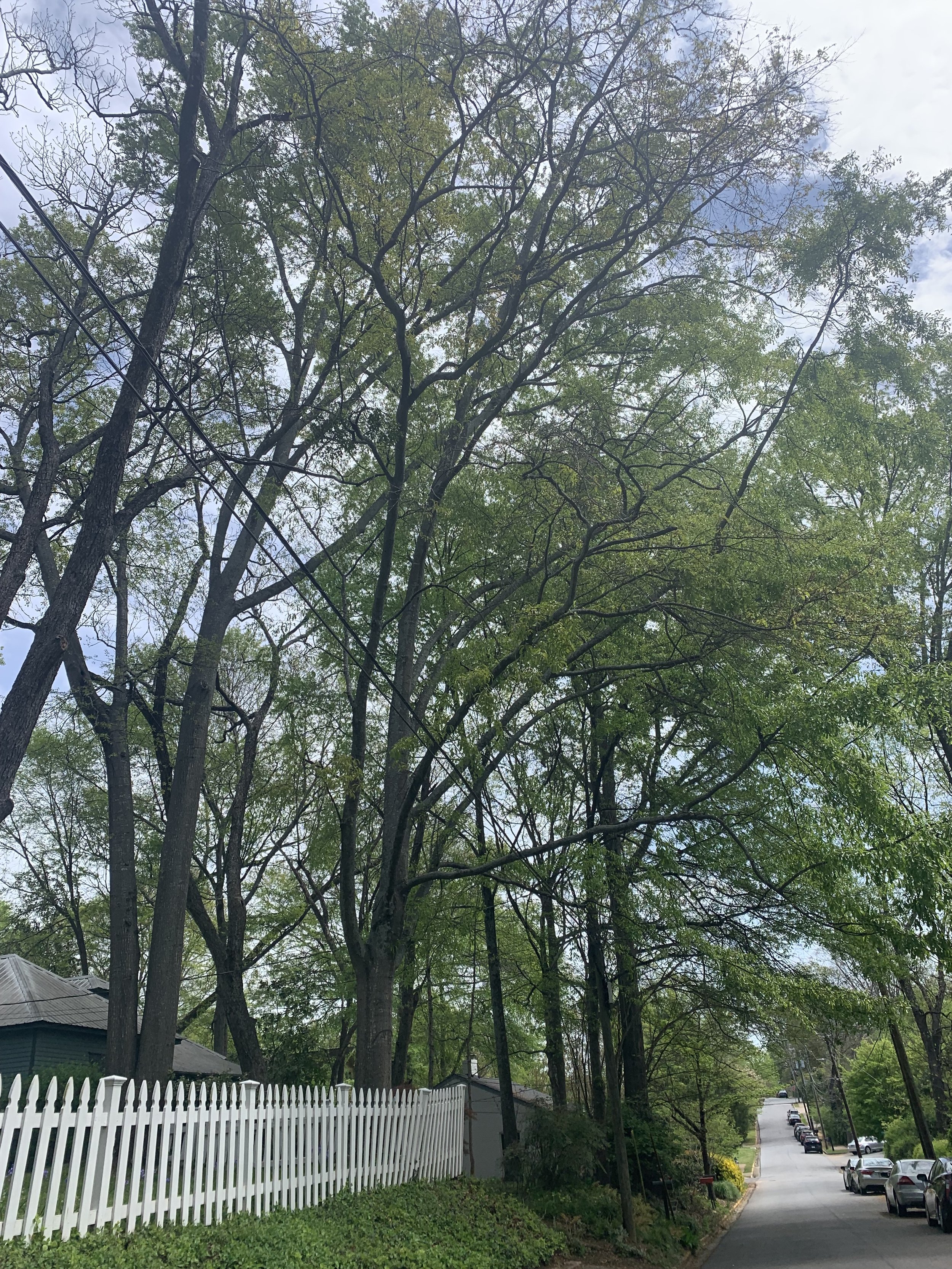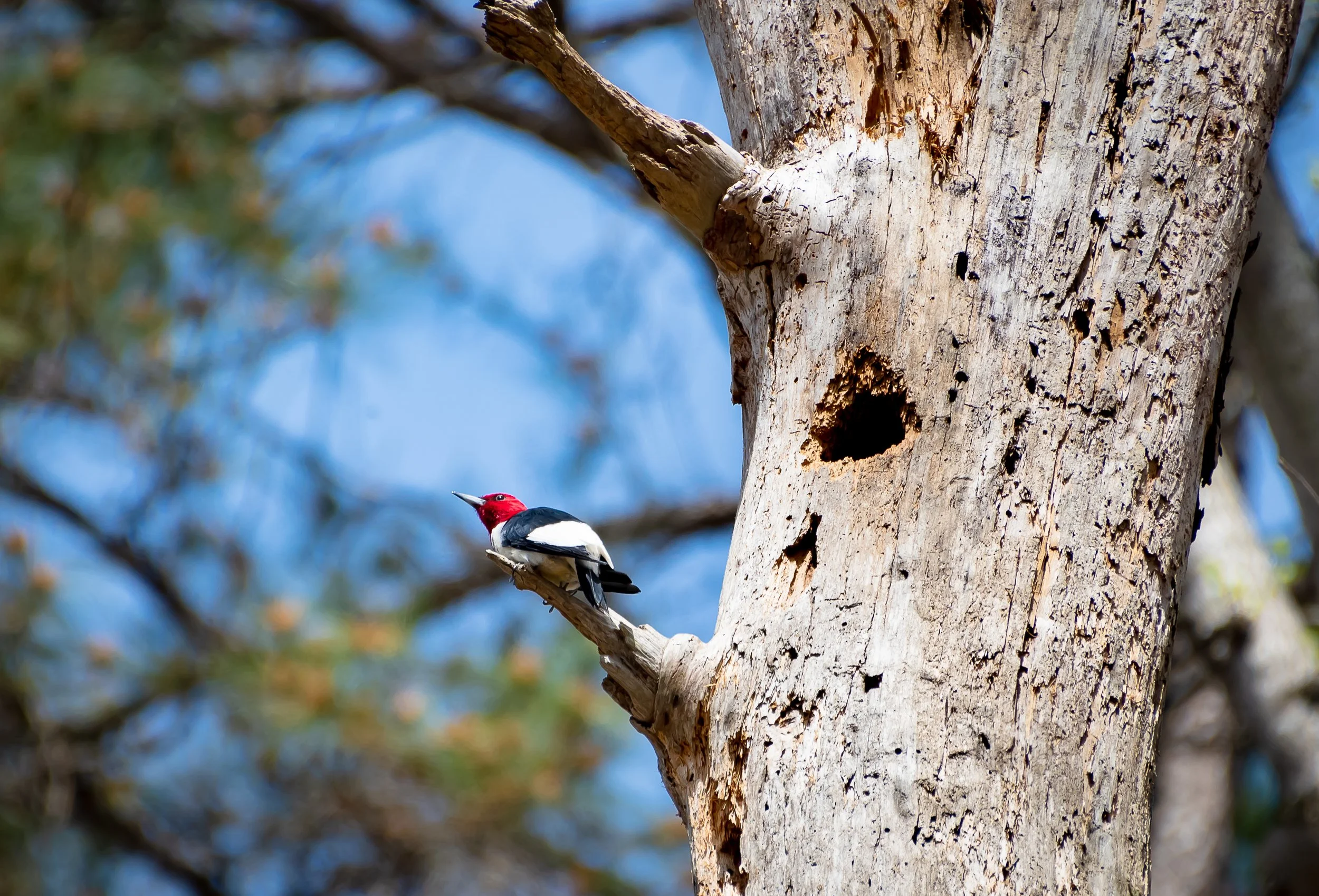Trees mingle with utility lines fairly often in a well-developed community setting; trees get larger and roads get wider and utility lines get redirected. The city routinely addresses limbs and trees that are growing up, over, and around hi-voltage or overhead power lines. The rule of thumb is to keep the limbs ten feet away from the lines. If a tree or limb is at least ten feet away, then an experienced, professional, fully-insured tree company could provide pruning or removal of the tree. If not, then it would require a call to the power company first for more solutions on how to address the tree.
Service lines travel from the overhead power lines to the home. The responsibility falls to the homeowner to keep these lines clear of trees and tree branches as necessary.
If a tree removal is too close to a service line, sometimes it requires a service drop and should be scheduled alongside the power company to safely disconnect the line and drop it for the tree company to complete the work. After the tree work is performed, a call back to the power company will issue a reconnect and usually only takes 2-3 hours. The drop and reconnect can be coordinated by the tree care company with expressed permission from the customer.
If a tree brings down a power line, high-voltage or low-voltage, cable or phone, it should be considered live and electrified, hazardous, and should not be handled by anyone other than the service carrier or an experienced tree person who can make the proper calls to secure the work area.


